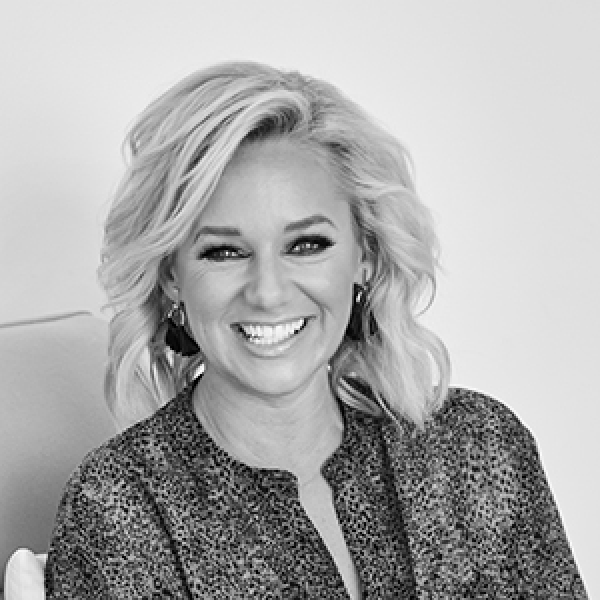
ASKING FOR A FRIEND
I've been diagnosed with ADHD and while I think I've got a handle on it, I'm not sure how to bring it up at work. Should I?
ASKING FOR A FRIEND - QUESTION
Getting an ADHD diagnosis brings clarity but also questions about workplace disclosure. Should you tell your boss? What should you say? Psychologist Sabina Read and TBWA CEO Kimberlee Wells share practical strategies for navigating ADHD conversations at work. Sabina, who specialises in supporting creative industry professionals, explains how to assess workplace safety and move beyond labels to communicate your specific needs. Kimberlee brings real-world leadership experience, sharing examples of how forward-thinking agencies create genuinely supportive environments. Together, they offer a roadmap for bringing your whole self to work while protecting your wellbeing and career.
Navigating ADHD Disclosure in the Workplace
Getting an ADHD diagnosis can feel like finally having answers, but it also brings new questions about how to handle this information at work. The decision of whether to share your diagnosis with colleagues or managers is deeply personal, and there's no one-size-fits-all approach. What matters most is finding a way forward that feels safe and empowering for you.
This question was answered by Sabina Read, psychologist and mental health expert with extensive experience supporting people in the creative industry, and Kimberlee Wells, CEO of TBWA with years of creative leadership experience and a track record of building supportive workplace cultures. Andy Wright served as host, founder of Never Not Creative and CEO of Streamtime.
Assessing Your Workplace Safety First
Before considering any disclosure, Sabina emphasises the importance of gauging your workplace culture: "There's no legal reason why we shouldn't be able to bring up a mental health issue, but what's probably far more important here is people's sense of safety within the place that they work."
The key is to observe how your workplace has handled vulnerability in the past. "How have they been treated when they're fragile? What's happened to them when they haven't been able to step up? People are watching all the time as to what the culture is saying," Sabina explains. Look at how colleagues have been supported during difficult times, whether that's mental health struggles, family crises, or even returning from maternity leave.
Moving Beyond Labels to Impact
If you do decide to share your ADHD diagnosis, Sabina suggests moving beyond simply naming the condition. "Do not assume that people understand the diagnosis that you're sharing, and it's also assuming that they understand the impact of this diagnosis on you," she notes.
Instead, focus on communicating how ADHD affects you specifically and what you need to thrive. Sabina recommends framing it like this: "I've been diagnosed with ADHD and I wanted to share how it impacts me and how I think you're going to get the best out of me. What I need to really thrive in this environment alongside my ADHD."
This approach positions you as someone who understands themselves and comes with solutions, rather than someone seeking help or making excuses.
Creating Supportive Systems
Kimberlee shares practical examples of how leadership can create genuinely supportive environments. At TBWA, they've implemented what they call a "surf's up protocol" for team members dealing with mental health challenges. "If you're having a really shitty day and you don't think the best place for you is going to be in this environment, you literally just need to send a text message saying 'surf's up'," she explains.
They've also made specific accommodations, like providing audio recordings of long documents for a team member with dyslexia. These examples show how workplaces can adapt to support different needs without making a big fuss about it.
When Your Workplace Isn't Ready
Not every workplace will be as understanding, and that's a harsh reality. As Kimberlee puts it: "If you don't feel like you can be yourself in the environment that you're in, then that's not the environment for you."
While this might sound daunting, especially in a competitive industry, both speakers encourage being part of the change you want to see. Sabina suggests: "Be the change you want to see. How can you invite that kind of change in your own agency or your own environment so that it becomes the norm?"
Finding Your Community Through NNC Circles
If you're navigating ADHD in the workplace, you don't have to figure it out alone. Never Not Creative's Circles programme connects small groups of creatives dealing with similar challenges. These peer support groups provide a safe, confidential space to share experiences and practical strategies for managing mental health at work. The monthly sessions combine mental health education with group discussion, helping you build both understanding and community. Learn more about NNC Circles.
When You Need Professional Support
While workplace conversations about ADHD can be manageable with the right approach, sometimes you might need additional support. If you're feeling overwhelmed by the process of disclosure or managing ADHD symptoms at work, professional help can make a real difference. Mental health professionals who understand ADHD can help you develop coping strategies and build confidence in workplace situations. Find professional help resources.
Know Your Rights and Options
If you're facing discrimination or unfair treatment related to your ADHD diagnosis, you have options. Never Not Creative's Support Line provides free initial legal advice for creative industry professionals dealing with workplace issues including discrimination and harassment. Sometimes just understanding your rights can give you the confidence to navigate these conversations more effectively. Access the Support Line.
Remember, your ADHD diagnosis doesn't define your worth or capabilities. It's simply one part of who you are, and with the right approach and support, you can create a work environment where you truly thrive. You're not alone in this journey, and there are people and resources ready to support you along the way.
our guests
Industry Leader

Kimberlee Wells
TBWA
Mental Health Expert

Sabina Read
Host

